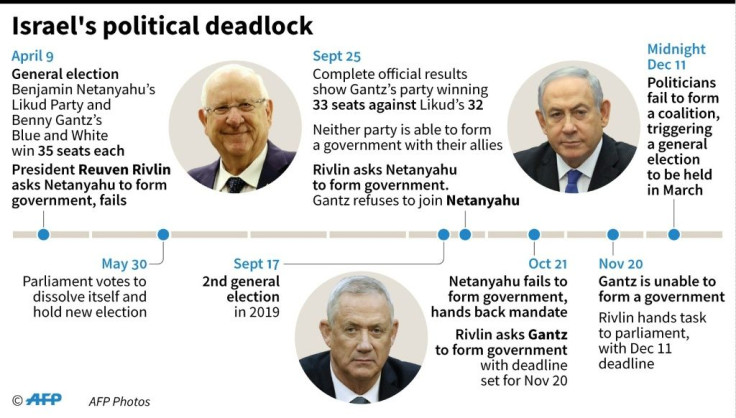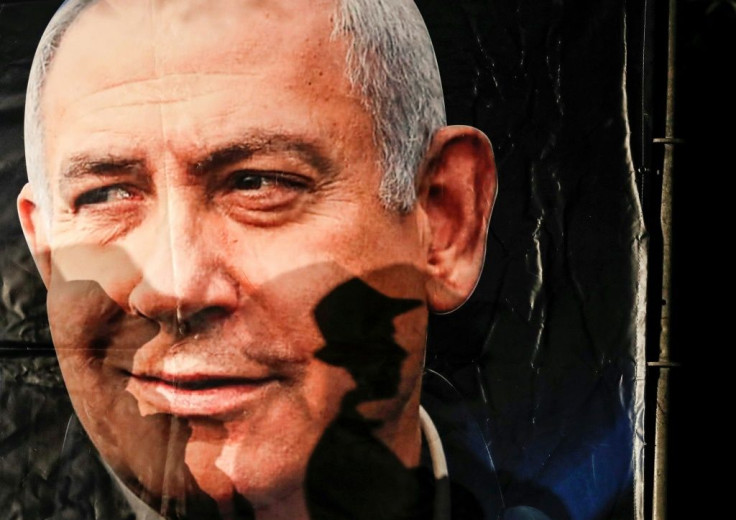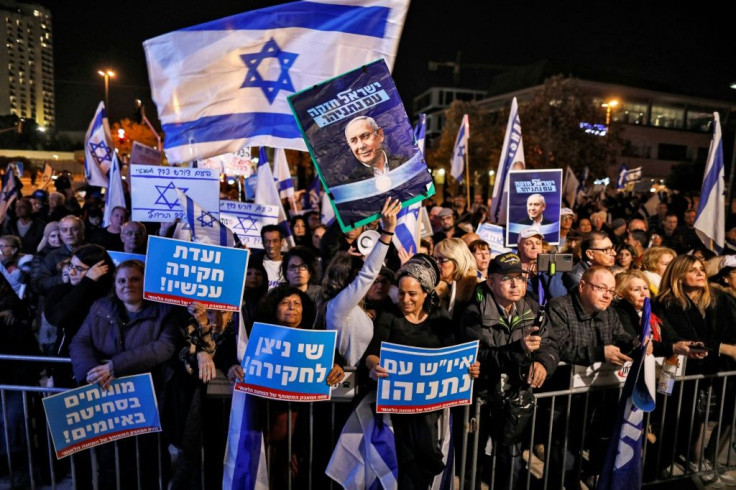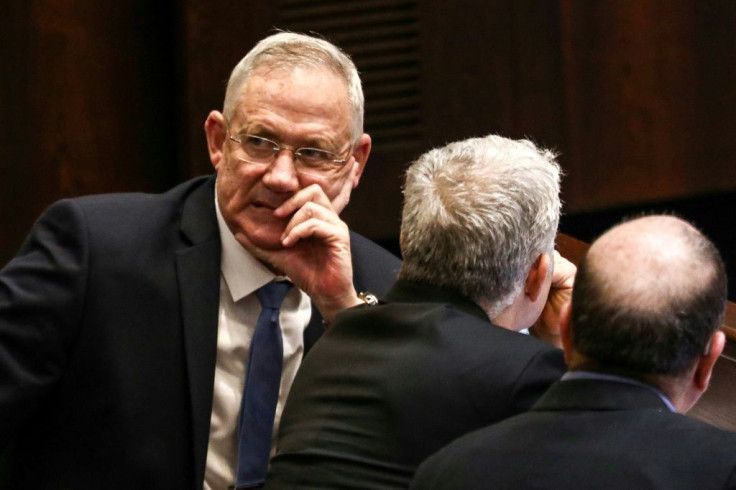Election-weary Israel To Face Third Vote In A Year

Israeli Prime Minister Benjamin Netanyahu and rival Benny Gantz prepared Thursday for their third election campaigns in a year, with the country trapped in its worst political crisis in decades.
Israel's parliament dissolved itself and called March 2 elections in the early hours of Thursday morning, less than three months after an inconclusive general election saw neither Netanyahu nor Gantz able to form a governing coalition.
The September election followed a similarly deadlocked vote in April and opinion polls suggested the third round could again be tight, with neither Netanyahu's right-wing bloc nor Gantz's centre-left alliance currently on course for a majority.
Pro-Netanyahu newspaper Israel Hayom labelled the deadlock a "circus" on its front page on Thursday.
Public dissatisfaction with the stalemate prompted President Reuven Rivlin to call for citizens not to lose faith in the democratic process.
For Netanyahu, who was last month indicted on a series of corruption charges, the immediate challenge is to make sure he leads his Likud party into the election -- with a leadership primary set for later this month.
In September, Gantz's Blue and White alliance won 33 seats in the 120-member parliament, while Netanyahu's Likud got 32.
Unable to command a majority with their natural allies, the two men spent weeks in talks on a national unity government but failed to agree on who should lead it.
Gantz was expected to address a meeting of his faction on Thursday evening.

Repeat elections are deeply unpopular with the Israeli electorate, and Gantz and Netanyahu were quick to trade blame on Wednesday.
Opinion polls found that around 40 percent of respondents blamed Netanyahu primarily for the deadlock, with only 5 percent naming Gantz as the main cause.

Rivlin, a largely ceremonial figure who had been trying to force the rivals to compromise, called on Israelis to keep faith in politics.
"We must not allow ourselves to sink into despair or grievance, which does no good. We must not lose faith in the democratic system," he said in a statement.
"I hope that this is the last election campaign for the next four years, and that we will be able to grow as a people and a society."
The last two elections have been seen as referendums on the leadership of Netanyahu, Israel's longest-serving leader but a deeply divisive figure.
The 70-year-old has been in power since 2009.

Politics professor Gideon Rahat said the third round would again revolve around whether voters are "for Netanyahu or against Netanyahu."
Israel's attorney general last month charged Netanyahu with bribery, fraud and breach of trust in a series of corruption cases. He denies all wrongdoing, blaming a witchhunt.
"Netanyahu might try to ask people to protect him vis-a-vis the vicious people that are after him," Rahat said. "The other side will say he is corrupt and he shouldn't be the next prime minister."
Under Israeli law Netanyahu does not have to resign as prime minister until convicted, though he cannot hold other ministries while under indictment.
On Thursday Netanyahu's lawyer announced the premier would resign from his other posts of minister of agriculture, diaspora, health and welfare.
Netanyahu has proven to have a loyal support base and there have been few signs he will be abandoned by many of them.
Gantz had called on Netanyahu to announce he would not seek immunity from prosecution if he wins and Israeli media said the issue was likely to loom large in the campaign for next year's election.
Netanyahu's immediate concern is ensuring he remains Likud leader, with a primary set for December 26.
His only confirmed challenger, Gideon Saar, has called for a change of leadership to clean up politics.
A majority of Jewish Israelis identify as right wing, said Dahlia Scheindlin, a political analyst who has worked on seven elections.
She said while small changes could have a significant impact, both Gantz and Netanyahu faced an uphill struggle to win a majority -- with a third deadlock the likely result.
"There may be some small shifts between the parties, but it is very hard to imagine either bloc getting 61 (seats in parliament) without Lieberman," he said.
Israel has now been nearly a year without a fully empowered government.
The three elections could cost the economy a total of 12 billion shekels ($3.4 billion, 3.1 billion euros), according to the Manufacturers Association of Israel.
"The country is still functioning, nothing has collapsed, schools and hospitals are still open," Scheindlin said.
"But we are seeing a hobbled situation -- budgets haven't been passed, no long term planning is possible."
© Copyright AFP 2024. All rights reserved.





















